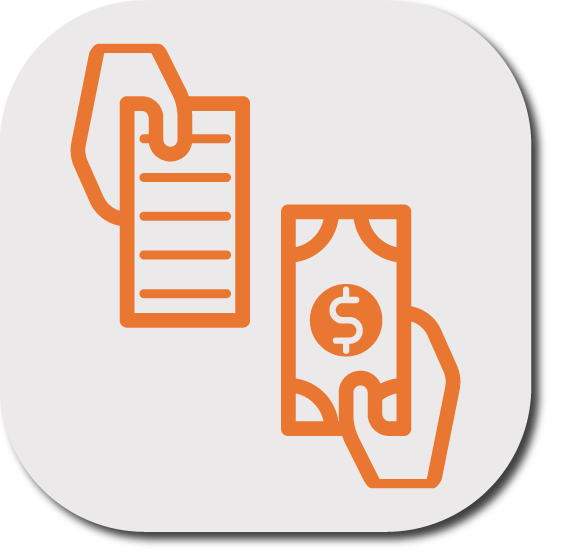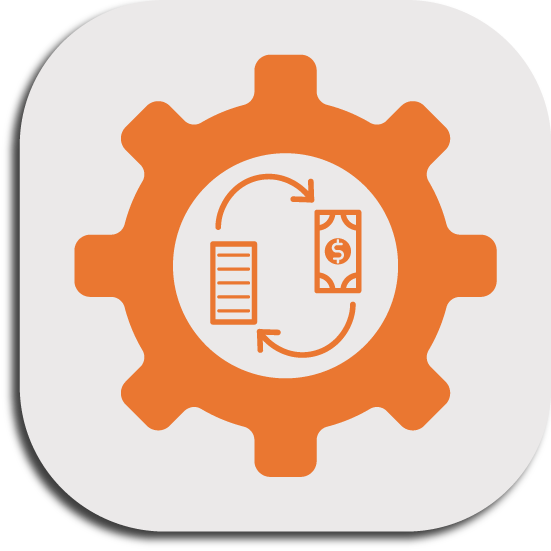Table of content
The popularity of CFD trading has significantly increased over the past few years, prompting more brokerages to start providing CFDs as part of their services.
For some, the concept of CFD might be a bit vague, which is why we shall look into it in a bit more detail. Simply put, a CFD or Contract for Difference is a tradable contract between a CFD broker and its client, where both sides exchange the difference in the current value of a product and its value at the end of the contract. It is vital to note, that investors never actually own the security they are betting on.
Now that we have more or less defined the concept, we shall look in greater detail on the distinctive features of CFD brokers, define who the best CFD providers are, and see how they stand out when compared to regular brokers.
 What exactly is CFD
What exactly is CFD
As mentioned before, CFD itself stands for Contract for Difference and is essentially an Over the counter trading instrument, with the most distinctive feature being that investors don’t own the assets they trade on, instead, making a profit on the movement of prices when opening and closing their trades.
CFD brokers can be broken down into two main categories, the Market Makers, and the Direct Market Access brokers, on DMA brokers for short. The distinction comes in a way they allow their traders to operate and the initial deposit requirements to be eligible to trade.
In the case of Market Makers, it is the broker that acts as both the buyer and seller of a given asset, buying up positions from liquidity providers and then selling them to individual traders. Since they are able to cover liquidity gaps by themselves, they are able to offer their traders to trade and with lower deposits.
In the case of Direct Market Access brokers, traders deal with liquidity providers directly, where you trade straight with the brokerage once you open your trade, with no intervention from the middle man. Mainly, those are Electronic Communication Network brokers, or ECN brokers for short. As a result of this structure, you will see that DMA brokers tend to require significantly higher deposits.
 How does CFD work
How does CFD work
The trading with CFD brokers happens through dedicated online platforms, where registered users deposit their funds, trade on the movement of prices of assets offered by CFD broker, and withdraw the profit at the end of the trade.
One of the most attractive features of CFD brokers is their flexibility. This means that a single platform can grant access to all major markets around the globe, giving you the ability to trade in a great variety of CFD products during market hours. CFDs present an impressive array of diversified trading options. Top online CFD trading brokers can offer you assets such as:
- Currencies
- Commodities
- Stocks
- Cryptocurrency
- Index CFDs
- Treasury CFDs.
 How are CFD and regular brokers different
How are CFD and regular brokers different
Though CFD brokers might look similar to regular brokers at a glance, there are some differences worth mentioning. One of the primary differences is, that CFD brokers offer their clients much higher leverage compared to more traditional brokers. In fact, the leverage offered, which depends on the underlying asset and margin requirements, starts at as low as 2%. However, they can go up to 19-20%.
While comparing CFD and regular brokers, we may say that the lower margin requirements in CFD markets lead to less capital outlay for investors, which leads to high potential gains. It is important to note here, that while excessive leverage offered by CFD brokers might be tempting, we recommend you to take each step with a good degree of caution, even if you are dealing with best CFD brokers. CFDs are highly-leveraged products and thus present a considerable risk of losing most of your investments on a single trade, which is why being extra cautious, well prepared, and having good foresight is essential should you aim for success.
Another distinctive feature of CFD brokers is the near-absolute absence of fees associated with order execution. As opposed to ordinary brokers, most CFD providers do not charge any commissions to enter or exit a specific trade, instead, generating revenue by charging traders the price of the spread. Underlying assets in CFD markets can be volatile, and depending on this factor, the spread can either be small or quite substantial. However, the case with top CFD brokers usually is, that they apply a fixed spread for each product. As for the orders, they are pretty much the same for both CFD and traditional Forex brokers. Such orders include stop-loss orders, limit or “take-profit” orders, contingent orders, and some brokers even offer a guaranteed stop-loss, usually for an extra fee.
 CFD Regulation
CFD Regulation
CFD trading itslef is not highly regulated yet, and no specific day trading requirements exist. Although a major case for most financial markets, the CFD market does not impose any rules to limit the accessible capital for day trading, meaning, that should you choose CFD as your primary investment method, you will be able to place day trades with no limits whatsoever. Generally, CFD brokers are able to provide accounts with minimum deposit requirements for as little as $100. Do keep in mind, that this amount differs among different brokerages, which you will see in our comparison of CFD brokers below.
Generally, we strictly advise our traders to work with regulated CFD brokers, as a guarantee to have protection from potential scams, and for their investments. Although a positive note here is, that the number of licensed CFD brokers is quite substantial, being subject to regulation by local regulators, such as the Financial Conduct Authority (FCA) in the United Kingdom, Cyprus Securities and Exchange Commission (CySEC) in Cyprus, and the European Securities and Markets Authority (ESMA) in the EU, and the
 What are the best CFD brokers
What are the best CFD brokers
For an inexperienced trader, differentiating various CFD brokers, evaluating their pros and cons may be a difficult task. Even if you go for a regulated CFD broker, which you should most likely do, differences among them exist, stemming from specifics of their practices, which suit some traders more then others. To assist our readers in identifying differences, and finding best-suited CFD FX brokers, we have compiled a list of the best CFD brokers, based on a number of key criteria.
Conclusion
Last, but definitely not least, an important aspect of CFD brokers, that needs to be mentioned, is that whenever you trade CFDs, you are not subjected to short-selling rules. This is due to a simple fact that the CFD market does not have them. Some traditional brokerages prohibit shorting at particular times and thus require you to borrow the instrument prior to selling, or even present different margin requirements for shorting. Since the underlying asset is never actually owned, a chosen instrument can be shorted whenever you prefer to do so. Thereby, either shorting or borrowing costs are fully eliminated.
If you ever think about trading CFDs, you will not be disappointed. Despite the fact that CFDs usually offer higher returns, having proper risk management is of crucial importance still. In the CFD market, there are a lot of good brokers, though we tend to think that the top CFD trading brokers are Plus500 and EasyMarkets, and can confidently recommend you to join them.



